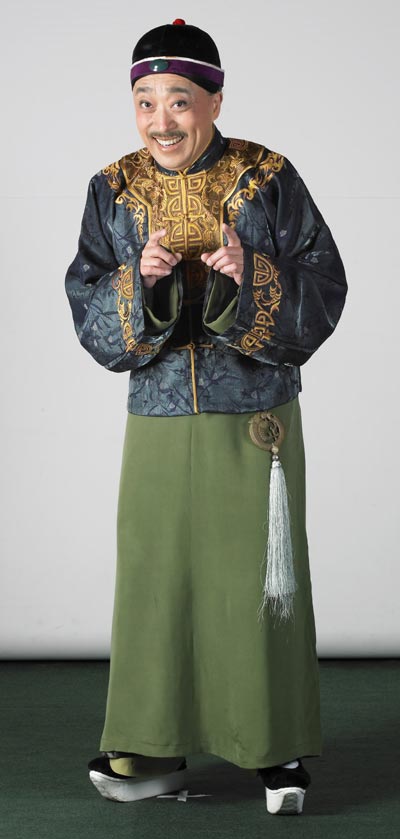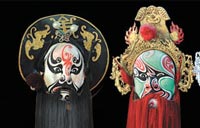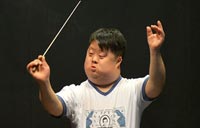 |
|
Li Baochun plays Wu Zhaoqian in the show, which he also directs. Photo provided to China Daily |
 |
| Sichuan Opera discovers the world's a stage |
 |
| Disabled prodigy who's music to ears |
Attracted by the story and roles, he was fascinated by the notion of revising the drama with a Peking Opera approach.
"I like the conflict told through the story, which is suitable for a Peking Opera adaptation," Li says. "Also, it connects with today's audiences, even though the story happened hundreds of years ago."
"Peking Opera has so many great ways to interpret a role, especially in displaying complicated emotions. I read the first chapter revised by Li and I loved it," Guo said in an earlier interview.
Li spent the past few years working on the script and directing the show. He also plays the role of Wu, who used to be as righteous as Gu but later lost his way.
"I am attracted to the change of Wu, which resulted from the hostile environment and his miserable life in Ningguta," Li says. "He has to cater to the authorities there to survive, becoming less virtuous. Those changes are unacceptable to Gu so they grow apart in the end."
Renowned Kunqu Opera actor Qian Zhenrong has been invited by Li to perform the role of Gu.
The soft, smoothing singing of Kunqu Opera, Li says, contrasts with the powerful Peking Opera performance style, highlighting the different personalities and the conflict between the two roles.
"People need friends and the ability to deal with various relationships. It's a universal topic no matter how old you are and where you come from," Li says.
When the show premiered in Taipei last year, Li was surprised to see 80 percent of the ticket holders were young people, mainly students, who see the story from their own perspective.
The story, especially the chapter on banishing Wu to Ningguta, also reminds Li of his own experience, when he was sent to work on the farms during the "cultural revolution" (1966-76).
"I can still recall the tough environment, not only the poor living conditions but also the depression of leaving home and having no idea about the future," Li recalls.
|
|
|
|
|
|
|
|
